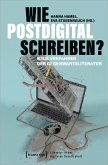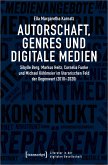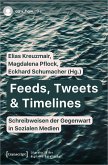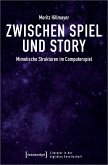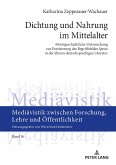Die Digitalisierung hat die Art und Weise verändert, wie Menschen über Bücher kommunizieren. Neu entstandene Praktiken, wie Buchblogging oder Social Reading, lassen sich nicht unmittelbar in traditionelle soziokulturelle Kategorien wie »Literaturkritik«, »Arbeit«, »Freizeitbeschäftigung« oder »Marketing« einordnen. Sie werden teilweise sogar als Konkurrenz oder Bedrohung für bestehende Handlungsformen, wie die professionelle Literaturkritik, wahrgenommen. Im Zentrum steht daher die Frage, wie bzw. anhand welcher Deutungsmuster, Topoi und Narrative die Tätigkeit von Buchblogger_innen als exemplarische Form dieser neuen digitalen Praktiken der literaturbezogenen Anschlusskommunikation diskursiviert wird. Daraus ergeben sich nicht nur Erkenntnisse über aktuelle Entwicklungen innerhalb des Literaturbetriebes, sondern auch Einsichten in digitale Arbeitswelten, in denen Buchblogger_innen als sogenannte 'Influencer_innen' agieren.
Digitization has changed the way people communicate about books. New practices, such as book blogging or social reading, cannot be directly classified by traditional socio-cultural categories such as "literary criticism", "labor/work", "leisure time activity" or "marketing". In some cases, they are even perceived as competition or threats to existing forms, such as professional (journalistic) literary criticism. Therefore, the central question of this book is how and based on which interpretation patterns, topoi and narratives the activities of book bloggers are framed as an exemplary form of these new digital practices of literature-related follow-up communication. The answer to this question not only provides insights into current developments within the literary field but also into digital working environments, in which book bloggers are involved as so-called 'influencers'.
Digitization has changed the way people communicate about books. New practices, such as book blogging or social reading, cannot be directly classified by traditional socio-cultural categories such as "literary criticism", "labor/work", "leisure time activity" or "marketing". In some cases, they are even perceived as competition or threats to existing forms, such as professional (journalistic) literary criticism. Therefore, the central question of this book is how and based on which interpretation patterns, topoi and narratives the activities of book bloggers are framed as an exemplary form of these new digital practices of literature-related follow-up communication. The answer to this question not only provides insights into current developments within the literary field but also into digital working environments, in which book bloggers are involved as so-called 'influencers'.



